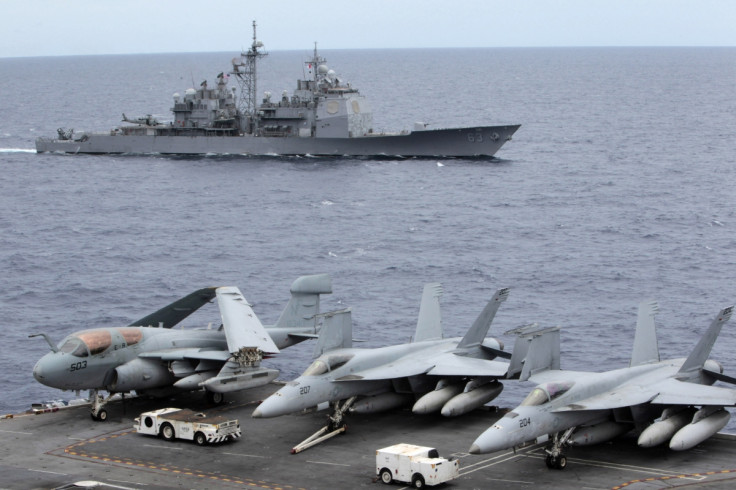China Uses Double-Speak in US Warship Near-Collision Row

China's Defence Ministry tried to play down a diplomatic confrontation with the US over a near-collision between two warships in the South China Sea.
China said military relations between the two superpowers had excellent prospects.
However, at the same time a Communist Party mouthpiece blamed the US for the incident and described Washington as a "troublemaker".
"Relations between the Chinese and US militaries enjoy excellent prospects for development and both sides are willing to boost communication, coordinate closely, and work to maintain regional peace and stability," China's Defence Ministry said.
Earlier, the US said one of its guided missile cruisers operating in international waters in the South China Sea was forced to take evasive action to avoid a collision with a Chinese warship on 5 December.
"The Chinese naval vessel strictly followed protocol and handled the incident," China's Defence Ministry said in China's first official comment on the incident.
"The two defence departments used normal working channels to stay informed about the situation and communicated effectively," it said.
Meanwhile the Global Times newspaper cited a military sources as accusing the American warship – the USS Cowpens – of "tailing after and harassing" Chinese ships accompanying the country's first aircraft carrier - the Liaoning - on sea trials.
"Bad guys always claim innocence first," the source was quoted as saying. "The USS Cowpens was tailing after and harassing the Liaoning formation. It took offensive actions at first towards the Liaoning formation on the day of the confrontation."
In a separate opinion piece the paper also bashed John Kerry's recent visit to South East Asia.
During an official trip to Vietnam and the Philippines, the US Secretary of State voiced concerns about Beijing's "coercive and aggressive tactics to advance territorial claims."
Kerry's words came in the wake of an escalating diplomatic row sparked by China's unilateral imposition of an air defence zone above a disputed part of the East China Sea, including a group of islands controlled by Japan.
Kerry also pledged more than $70 million in security assistance to Hanoi and the Manila, which are also locked in bitter territorial disputes with China.
"The US is hardly qualified to be a peacekeeper in the South China Sea. In fact, it is more like a troublemaker," the Global Times wrote.
"US interference into the territorial dispute in this region, where Washington is neither a claimant nor a direct stakeholder, has messed up the situation."
© Copyright IBTimes 2025. All rights reserved.






















